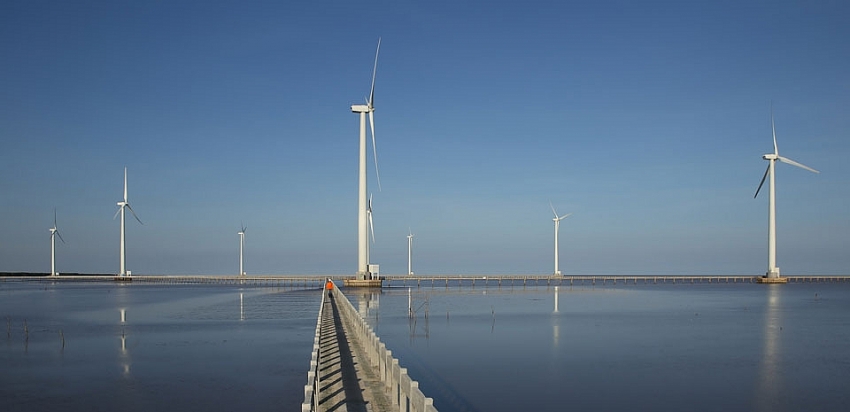3rd Renewable Energy Week starts tomorrow
 |
| Vietnam's renewable sector is still far behind its potential |
With the message “Clearing the path for renewable energy to every home in Vietnam,” the Renewable Energy Week this year aims to encourage all Vietnamese citizens to become part of the energy transition and to directly benefit from this process.
“Together with our partners, we will redouble our efforts in the development of Solar PV technology as a means of facilitating a socially just energy transition that gives customers the means to produce their own power and to become empowered consumers,” said Nguy Thi Khanh, GreenID’s Executive Director, the coordinating organisation of Vietnam Sustainable Energy Alliance (VSEA).
In addition, this programme will also attract the participation of management agencies, policymakers, as well as leading national and international experts in renewable energy, and individuals and organisations working in the energy sector to discuss issues and find solutions to overcome challenges, promote success and innovation in Vietnam. There will be a series of events held by Vietnam Sustainable Energy Alliance (VSEA) and the Climate Change Working Group (CCWG) in Hanoi, Ho Chi Minh City, and Can Tho, including workshops, exhibitions, and site events.
At the policy level, the long-awaited Feed-in Tariff (FiT) scheme for utility-scale solar projects, along with a net metering scheme for household rooftop PV systems, was issued by the prime minister in April 2017. The FiT went into effect on June 1, 2017 and will remain in effect until June 30, 2019.
On September 12, 2017 the Vietnamese Ministry of Industry and Trade (MoIT) released the circular “Regulating Solar Power Project Development and Standardised Power Purchase Agreement for Solar Power Projects,” creating more clarity on these issues. In response to this policy incentive, there was massive solar project registration and several thousand MW were added to the national grid, with some constructions already underway.
Accordingly, the 3rd Renewable Energy Week will focus discussions on these barriers, on how to remove or bypass them to make RE feasible and a benefit for all in Vietnam. The week will involve a chain of inter-related activities, including workshops, seminars, field trips, exhibitions, and other events in parallel.
VSEA initiated the 1st Renewable Energy Week programme in Vietnam in 2016. So far, this programme has become an annual forum for policy makers, academics, and the public to discuss concerns and ideas and propose solutions to facilitate energy transition in Vietnam in a sustainable manner.
What the stars mean:
★ Poor ★ ★ Promising ★★★ Good ★★★★ Very good ★★★★★ Exceptional
 Tag:
Tag:
Related Contents
Latest News
More News
- Foreign leaders extend congratulations to Party General Secretary To Lam (January 25, 2026 | 10:01)
- 14th National Party Congress wraps up with success (January 25, 2026 | 09:49)
- Congratulations from VFF Central Committee's int’l partners to 14th National Party Congress (January 25, 2026 | 09:46)
- 14th Party Central Committee unanimously elects To Lam as General Secretary (January 23, 2026 | 16:22)
- Worldwide congratulations underscore confidence in Vietnam’s 14th Party Congress (January 23, 2026 | 09:02)
- Political parties, organisations, int’l friends send congratulations to 14th National Party Congress (January 22, 2026 | 09:33)
- Press release on second working day of 14th National Party Congress (January 22, 2026 | 09:19)
- 14th National Party Congress: Japanese media highlight Vietnam’s growth targets (January 21, 2026 | 09:46)
- 14th National Party Congress: Driving force for Vietnam to continue renewal, innovation, breakthroughs (January 21, 2026 | 09:42)
- Vietnam remains spiritual support for progressive forces: Colombian party leader (January 21, 2026 | 08:00)






















 Mobile Version
Mobile Version